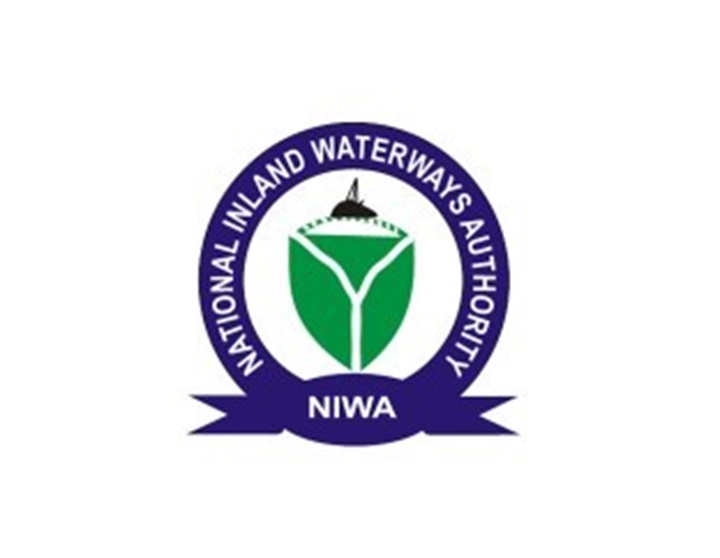The National Inland Waterways Authority (NIWA) has begun an extensive operation to clear water hyacinth from major waterways in Lagos State, in a move aimed at improving water transportation, boosting economic activities, and ensuring navigational safety across the state’s inland waterways.The clearance exercise, which began over the weekend, targets the removal of the invasive aquatic weed that has long disrupted movement on key routes, including Ikorodu, Mile 2, Badore, Falomo, and Ijegun. The initiative comes as part of NIWA’s broader strategy to enhance inland water navigation and ensure seamless transport operations within Nigeria’s busiest maritime corridor.
Speaking during the flag-off of the exercise, NIWA Lagos Area Manager, Engineer Sarat Braimah, said the intervention became necessary as the recurrence of water hyacinth had caused operational difficulties for ferry operators and boat passengers. According to her, the seasonal appearance of the weed between August and December poses significant challenges to the safety and efficiency of water transport, often resulting in engine damage, accidents, and service disruptions.

She explained that NIWA had deployed both mechanical and manual clearing equipment to tackle the weed infestation across strategic water channels. “We are fully committed to ensuring free and safe navigation on Lagos waters. This clearance exercise is a proactive step to mitigate the challenges faced by water transport users and operators. It will not only enhance mobility but also support the growth of maritime-related businesses,” Braimah stated.
Braimah further revealed that the exercise was being carried out in collaboration with private operators, state government agencies, and local communities to ensure comprehensive coverage and sustainability. “Our teams are working round the clock to clear major ferry routes and jetties. We are also engaging community volunteers to assist in monitoring and maintaining the cleared areas,” she said.
She noted that NIWA’s efforts align with the Federal Government’s policy to diversify transportation channels and reduce pressure on road infrastructure. “Water transport remains one of the most efficient and cost-effective means of moving goods and passengers. By addressing the water hyacinth menace, we are ensuring that this vital sector contributes significantly to the economy,” she added.
The NIWA Lagos boss also disclosed that the authority would embark on a long-term control mechanism to prevent the rapid spread of water hyacinth. The plan includes the introduction of biological control methods and improved waterway monitoring systems to detect early signs of infestation.
Water hyacinth, described by experts as one of the world’s most problematic aquatic plants, grows rapidly and forms thick mats that block sunlight, reduce oxygen levels, and hinder the free movement of vessels. In Lagos, it has become a perennial problem that affects trade, tourism, and transportation, particularly during the rainy season.
In his remarks, NIWA’s Managing Director, Dr. Munirudeen Oyebamiji, commended the Lagos office for its proactive response and assured that similar clearance exercises would be replicated in other states with heavy water traffic, such as Delta, Rivers, and Kogi. “This operation is part of our national strategy to make Nigeria’s inland waterways more navigable and productive. We are working to ensure that no part of our waterways remains inaccessible due to natural or artificial obstructions,” he said.
Oyebamiji emphasized that NIWA is investing heavily in modern dredging and debris-removal technologies, adding that the agency will continue to collaborate with international partners to introduce sustainable ecological management practices. “Our goal is not only to clear the waterways but to ensure they remain clean, navigable, and environmentally safe for long-term use,” he added.
Ferry operators and commuters have lauded NIWA’s intervention, describing it as a welcome relief after months of disrupted transport services. Some boat captains noted that the weed had caused engine damage and increased maintenance costs, forcing many operators to suspend operations on certain routes.
A commuter, Mrs. Tola Ogunbiyi, who plies the Ikorodu-Falomo route, expressed optimism that the cleanup would restore normal operations and reduce travel time. “For weeks, the ferry services have been slow because of the water hyacinth. This cleanup is a huge relief for those of us who rely on the waterways daily,” she said.
Similarly, the Lagos State Waterways Authority (LASWA) praised NIWA’s efforts, noting that the collaboration between both agencies will go a long way in improving the state’s transport infrastructure. LASWA General Manager, Mr. Damilola Emmanuel, reaffirmed the state government’s readiness to complement NIWA’s work with continuous monitoring and public awareness campaigns to discourage indiscriminate dumping of waste into the waterways.
Environmental experts have also highlighted the need for a sustainable approach to managing the weed problem. They recommend integrating community participation, regular surveillance, and eco-friendly control measures to ensure lasting results.
As Lagos continues to expand its water transport network as part of efforts to decongest road traffic, the timely intervention by NIWA is expected to significantly improve passenger safety, increase waterway capacity, and attract more investment into the sector.
The cleanup exercise, according to NIWA officials, will continue until the waterways are fully cleared, with maintenance teams stationed at key points to prevent re-infestation. The authority reaffirmed its commitment to ensuring that Lagos’s waterways remain navigable all year round, promoting a safer, cleaner, and more efficient transport system for the state’s growing population.
Support InfoStride News' Credible Journalism: Only credible journalism can guarantee a fair, accountable and transparent society, including democracy and government. It involves a lot of efforts and money. We need your support. Click here to Donate
